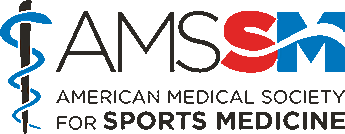 What is it? Carpal tunnel syndrome (CTS) refers to symptoms caused by compression of the median nerve at the wrist, within the carpal tunnel. It is the most common nerve entrapment seen in the general population, affecting approximately 3-6% of adults. Symptoms nearly always affect the palm side of the thumb, pointer (index) finger, and middle finger. These symptoms occur on a spectrum, starting with occasional pain or numbness, progressing to more persistent pain/numbness and ultimately can lead to weakness and wasting of the muscles controlled by the median nerve. Sports Medicine Evaluation & Treatment A sports medicine physician will perform a physical exam and conduct simple, specific tests in the office to help make the diagnosis of CTS. If the diagnosis remains uncertain, further testing can be performed to determine if there is compression of the median nerve. Electromyography (EMG) and nerve conduction studies are most commonly used. Corticosteroid Injections for Treatment of Carpal Tunnel Syndrome: For mild to moderate CTS, a corticosteroid injection is a safe, effective, and quick office-based procedure intended to help treat the symptoms of CTS. Your provider may or may not use an ultrasound to aid in the administration the injection. The injection works by reducing the inflammation surrounding the nerve and can provide symptomatic relief for several months (usually 1-3 months). Repeat injections, may be performed every 3-6 months and may vary by provider. However, if treatment with corticosteroid injections is not effective, your physician may discuss more invasive treatment options. Risks of injection • Pain at the injection site • Bleeding (although the risk is low, you should let your physician know if you have a bleeding disorder) • Infection • In individuals with darker skin, depigmentation may occur at the injection site • For some, an injection may not provide the intended relief or cause worsening of the symptoms - There may be a need for repeat injections as the symptoms return Benefits • May help to confirm the diagnosis • Provide relief of CTS symptoms • Reduce the need for nocturnal wrist splinting • Reduce the use of oral pain medications • Improved hand function Injury Prevention Because the development of CTS is multifactorial, there is no one definitive way to prevent symptoms from developing. A patient-specific approach should be discussed with your physician to address the underlying factors that may be contributing. Return to Play Athletes with CTS may return to play when they feel comfortable and are able to perform sport specific tasks (i.e. catching, throwing, grabbing) and can protect themselves by using their hand and wrists appropriately ie combative sports and throwing sports. Specifically regarding corticosteroid injections, there is no absolute delay in returning to play or activity following injection. Patients can potentially return the same day if they feel comfortable, pending an individualized discussion with their sports medicine physician. AMSSM Member Authors References Category: Hand and Wrist, Overuse Injuries, [Back] |

